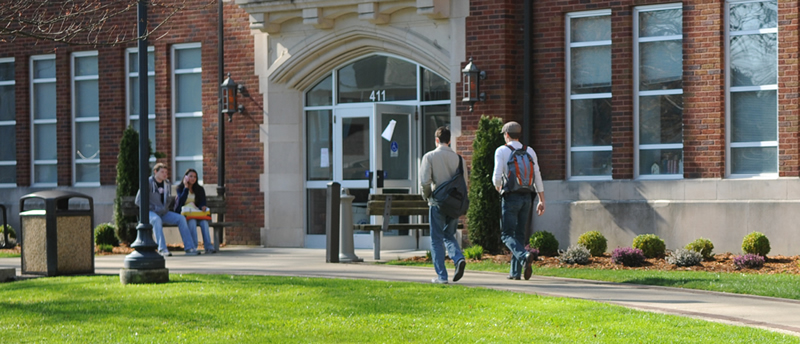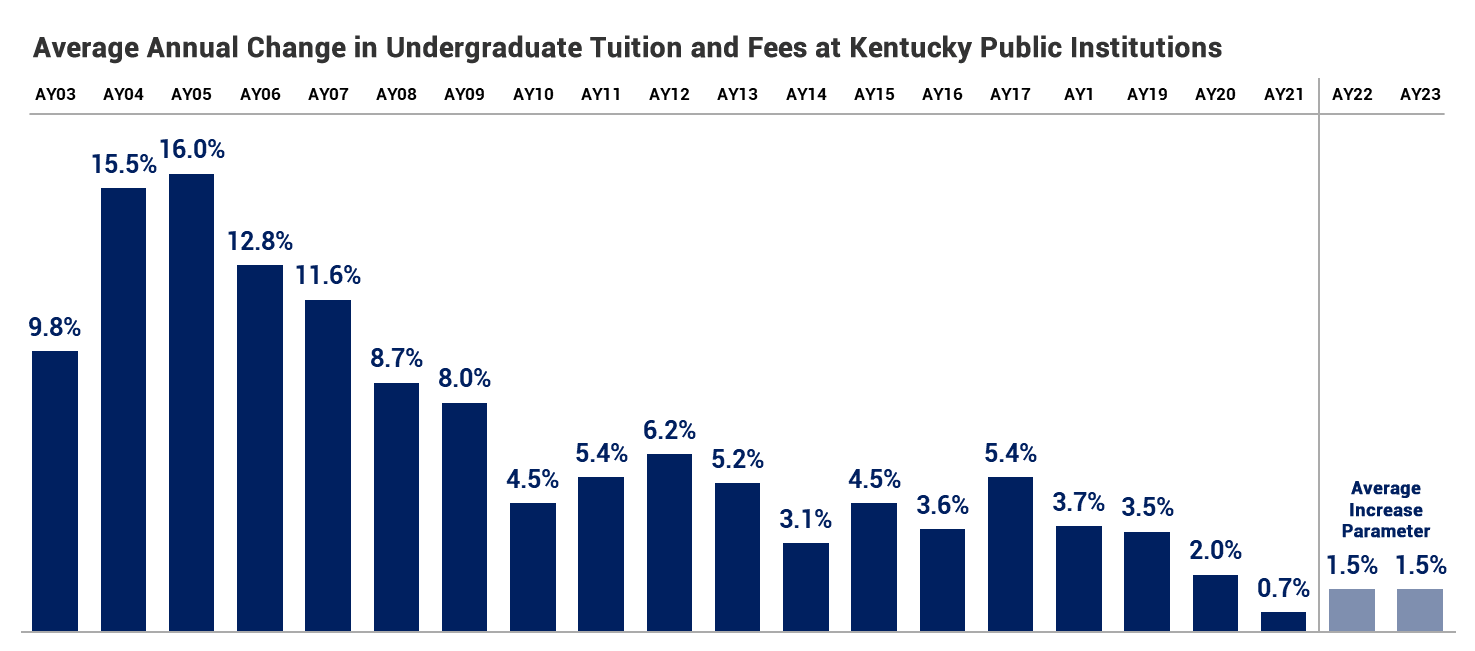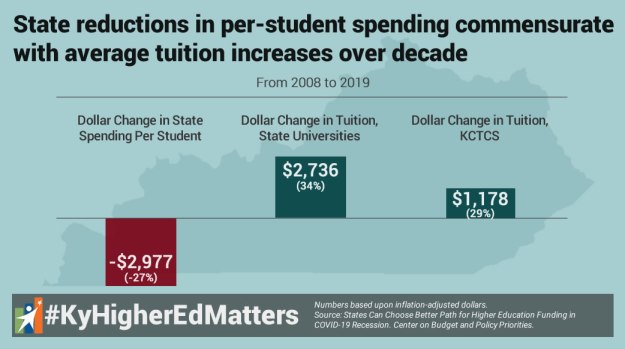CPE prioritizes college affordability with historically low tuition caps
June 02, 2021

The Kentucky Council on Postsecondary Education has capped tuition increases near historic lows for the next two years, limiting the cost increase to students while also providing financial flexibility for public colleges and universities.
The move allows universities to raise tuition up to 3% through 2023 – an average increase of 1.5% each year. However, campuses may not increase rates more than 2% in any one year. The ceiling applies to tuition and mandatory fees for resident, undergraduate programs.

The Council is also limiting tuition increases at the Kentucky Community and Technical College System to $5 per credit hour over the next two years. That's equal to a maximum 2.7% increase through 2023. At most, KCTCS may raise the rate by $3 per credit hour in any one year.
Council members adopted the new ceilings in May following months of collaboration with campus leaders. The caps apply to the 2021-22 and 2022-23 academic years. Campuses may choose to raise tuition in smaller amounts, or not at all. Institutions will submit their final rates for Council approval in June.
CPE President Aaron Thompson said the caps help ensure that tuition remains relatively stable as Kentucky recovers from COVID-19 and workers return to college for retraining. However, the plan also provides some cushion to campuses as they continue to face budget challenges from the pandemic, he added.
"Higher education is a public good and a shared responsibility," Thompson said. "The Council favored a moderate, balanced approach that protects students and families but also helps campuses mitigate the worst financial aspects of the past year."
The vote sets the stage for three consecutive years of historically low tuition increases. In the current year, five universities did not raise tuition at all, while three others raised it less than 2%, and KCTCS increased it by 2.75%. Taken together, this resulted in an average increase of 0.7% across the system. That's compared to an average of about 4 percent per year over the previous decade.
Campuses, meanwhile, are coping with an unprecedented budget squeeze due to lower enrollment and repeated cuts in state funding, which date back at least 10 years.
The latest projections show that fixed and unavoidable costs for campuses will climb by nearly $117 million next year – about 3.2%. Even if all campuses adopt the maximum tuition increases next year, the additional revenue will only cover about 23% of that need.
"The Council favored a moderate, balanced approach that protects students and families but also helps campuses mitigate the worst financial aspects of the past year." - CPE President Aaron Thompson
Over the past 14 months, campuses also have faced about $480 million in added costs and foregone revenue related to the pandemic. While federal funds have helped mitigate the financial impact, many institutions have costs and revenue losses that have not been fully addressed by federal awards. These costs and losses are expected to continue accumulating in the upcoming year, and campus leaders will be left to address them with institutional resources or through budget cuts.

Thompson praised Kentucky's federal delegation for moving quickly to provide the relief funds. He also commended Gov. Andy Beshear and the state legislature for their commitment to higher education for the upcoming year in the enacted state budget. The spending plan provides $17.3 million in performance funding for campuses along with millions more for capital investment and pension relief.
"These state and federal resources were instrumental in keeping the new ceilings relatively low," Thompson said. "The upcoming state budget is the best in years for higher education, and I want to commend all of our elected leaders, at every level, for recognizing our critical role in Kentucky's future and economic recovery."
Last Updated: 7/23/2021
